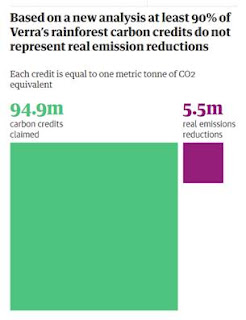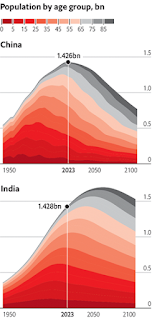The article in the url below is interesting because it demonstrates what can happen when good intentions disrupt well-established market practices/solutions:
"When one of the best-known supermarket chains in the U.K. decided to remove plastic from its products, it hadn't anticipated a spike in shoplifting. Yet that is what happened when Iceland Foods Ltd. started selling steak in recyclable paper trays. Some customers bent the pliable containers in half and stuffed them down their trousers, executives said. Such theft wasn't as easy when the steaks came wrapped in more rigid plastic packaging."
Such unintended consequences have arisen at the supermarket (named Iceland), in part, because the company has pledged to remove single-use plastic (e.g., packaging) from "its hundreds of store-brand products" by the end of 2023. This tight, self-imposed deadline has resulted in the implementation of rushed solutions that haven't yet been tested properly:
"Disentangling plastic packaging from food can be exceptionally hard in the best of times. A surge in demand for plastic-wrapped food during the pandemic and recent supply-chain disruptions caused by the war in Ukraine are making this objective even harder. More-expensive paper packaging is proving to be a liability at a time of rampant inflation, particularly because Iceland typically caters to more price-sensitive consumers."
But, aside from cost-related issues, I find the unintended consequences to be far more interesting:
"When Iceland wrapped bananas in paper bands instead of plastic bags, the fruit rotted more quickly or snapped off. When it packed bread in opaque paper bags, sales fell as shoppers balked at buying something they couldn't see. When it punched holes in paper bags filled with potatoes to make the contents more visible, the bags ripped."
Plastic has become as widely-used as it is for a very good reason. Single-use plastic, in particular, is extremely important, especially in any scenario were hygiene (food) or cleanliness (healthcare) is a priority. If there were better options out there, you would think they would be used instead. So, now that we realize the damage plastic is doing, firms are being rushed into optimistic, perhaps reckless deadlines (something that could easily be a metaphor for the whole climate change conversation), without having ready solutions in place. So, the innovation timeline is being forced, with the resulting consequences we are witnessing:
"Plastics and food have a long and complex relationship. After World War II, plastics such as cellophane played a pivotal role in creating the modern grocery store, allowing retailers to bring precut, pre-wrapped meat, fish and produce under one roof and obviating the need for counter-staff at butchers, fishmongers and greengrocers. Concerns about a lack of recycling, litter and greenhouse gas emissions from plastics began swirling in the 1970s, accelerating toward the end of the following decade and picking up momentum again in recent years."
In spite of knowing these negative consequences since "the 1970s," countries like Britain are late to the game in trying to implement change, with all the trial and error consequences we would expect. The popularity of plastic today, merely increases the scale at which change must be introduced. The article, therefore, is not a critique of Iceland, which is actually being more creative than most in terms of trying to find a solution, quickly; more, it is reflective of the scale of the challenge and demonstrates how unprepared we are currently to meet it:
"Scrapping plastic is particularly tricky for a number of products Iceland offers. Bacon that isn't wrapped in plastic quickly discolors, salad leaves wilt and unwrapped cucumbers rot more quickly. When Iceland first replaced the roughly 10 million plastic bags it used for bunches of bananas with paper bands, the switch lasted just a couple of months. The bananas shrank 20%, snapped off and rotted more quickly. The grocer scrapped a separate trial selling loose bananas and other produce after customers found it inconvenient and sales dropped 30%. … The greasier the product, the more plastic it needs to stop the grease seeping out of the pack. A paper bag for frozen shrimp needs a thinner coating than one for chicken nuggets, for instance."
Take care
David
David Chandler
© Sage Publications, 2023
Instructor Teaching and Student Study Site: https://study.sagepub.com/chandler6e
Strategic CSR Simulation: http://www.strategiccsrsim.com/
The library of CSR Newsletters are archived at: https://strategiccsr-sage.blogspot.com/
The Price of No Plastic? Stolen Steak
By Saabira Chaudhuri
June 18-19, 2022
The Wall Street Journal
Late Edition – Final
B6
https://www.wsj.com/articles/one-grocer-wanted-to-give-up-plastic-it-got-rotting-bananas-11655482334

